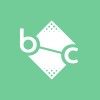
Combination Chemotherapy With or Without Donor Stem Cell Transplant in Treating Patients With Acute...
Acute Lymphoblastic LeukemiaAdult B Acute Lymphoblastic Leukemia5 moreThis phase II trial is studying the side effects of giving combination chemotherapy together with or without donor stem cell transplant and to see how well it works in treating patients with acute lymphoblastic leukemia. Drugs used in chemotherapy work in different ways to stop the growth of cancer cells, either by killing the cells or by stopping them from dividing. Giving more than one drug (combination chemotherapy) may kill more cancer cells. Giving chemotherapy and total-body irradiation before a donor stem cell transplant helps stop the growth of cancer cells. It also stops the patient's immune system from rejecting the donor's stem cells. The donated stem cells may replace the patient's immune cells and help destroy any remaining cancer cells (graft-versus-tumor effect).

Combination Chemotherapy in Treating Young Patients With Newly Diagnosed T-Cell Acute Lymphoblastic...
T Acute Lymphoblastic LeukemiaT Lymphoblastic LymphomaThis randomized phase III trial is studying different combination chemotherapy regimens and their side effects and comparing how well they work in treating young patients with newly diagnosed T-cell acute lymphoblastic leukemia or T-cell lymphoblastic lymphoma. Drugs used in chemotherapy work in different ways to stop the growth of cancer cells, either by killing the cells or by stopping them from dividing. Giving more than one drug (combination chemotherapy) may kill more cancer cells. It is not yet known which combination chemotherapy regimen is more effective in treating T-cell acute lymphoblastic leukemia or T-cell lymphoblastic lymphoma. After a common induction therapy, patients were risk assigned and eligible for one or both post-induction randomizations: Escalating dose Methotrexate versus High Dose Methotrexate in Interim Maintenance therapy, No Nelarabine versus Nelarabine in Consolidation therapy. T-ALL patients are risk assigned as Low Risk, Intermediate Risk or High Risk. Low Risk patients are not eligible for the Nelarabine randomization, Patients with CNS disease at diagnosis were assgined to receive High Dose Methotrexate, patients who failed induction therapy were assigned to receive Nelarabine and High Dose Methotrexate. T-LLy patients were all assigned to escalating dose Methotrexate and were risk assigned as Standard Risk, High Risk and induction failures. Standard risk patients did not receive nelarabine, High risk T-LLy patients were randomized to No Nelarabine versus Nelarabine, and Induction failures were assigned to receive Nelarabine.

Study to Test AKR1C3-Activated Prodrug OBI-3424 (OBI-3424) in Patients With Relapsed/Refractory...
Recurrent T Acute Lymphoblastic LeukemiaRefractory T Acute Lymphoblastic LeukemiaThis phase II trial studies how well OBI-3424 works in treating patients with T-cell acute lymphoblastic leukemia that has come back (relapsed) or does not response to treatment (refractory). Drugs used in chemotherapy, such as OBI-3424, work in different ways to stop the growth of cancer cells, either by killing the cells, by stopping them from dividing, or by stopping them from spreading. OBI-3424 may reduce the amount of leukemia in the body.

The Pediatric Acute Leukemia (PedAL) Screening Trial - A Study to Test Bone Marrow and Blood in...
Recurrent Acute Lymphoblastic LeukemiaRecurrent Acute Myeloid Leukemia6 moreThis study aims to use clinical and biological characteristics of acute leukemias to screen for patient eligibility for available pediatric leukemia sub-trials. Testing bone marrow and blood from patients with leukemia that has come back after treatment or is difficult to treat may provide information about the patient's leukemia that is important when deciding how to best treat it, and may help doctors find better ways to diagnose and treat leukemia in children, adolescents, and young adults.

Registry of Relapsed/Refractory T-cell Acute Lymphoblastic Leukemia
Relapsed/Refractory Acute Lymphoblastic LeukemiaT-cell Acute Lymphoblastic LeukemiaIn order to improve the outcome of relapsed and/or refractory T-cell precursor acute lymphoblastic leukemia (T-ALL) patients, and to facilitate the use of oncogenetic targeted therapies in these patients, we set up an observational cohort, collecting clinical and biological information's from patients with T-ALL in relapse or refractory, as well as the use or not of a targeted therapy. The analysis of the cohort will allow us to evaluate the impact of this therapeutic strategies on the patients' fate, and to facilitate access to innovation and personalized medicine for these patients.

CD7-CAR-T Cells in Pediatric Relapsed/Refractory CD7+ T-ALL/LL
T-Cell Acute Lymphoblastic Leukemia/Lymphoblastic LymphomaThe main purpose of this study is to evaluate the safety, to establish the recommended dose, and to evaluate the antitumor effect of CD7-CART01 in pediatric patients with relapsed or refractory (R/R) T-cell acute lymphoblastic leukemia (T-ALL) or lymphoblastic lymphoma (T-LL).

Advancing Chemical and Genomic Strategies for Relapsed/Refractory T-ALL and ETP-ALL
T Acute Lymphoblastic LeukemiaEarly T Acute Lymphoblastic Leukemia2 moreThis is a biological study for R/R T-ALL/LBL or ETP-ALL patients. Bone marrow and/or peripheral blood samples will be subjected to genomic, DSRP profiling and phosphoproteomic screening to identify novel potential therapeutic approach and thus, eligibility for treatment based on molecular and DSRP data. As soon as genomic and DSRP profiling are made available, local Investigator can submit to local ethic committee a request for clinical use of identified compound.

A Long-Term Safety Follow-Up Study for Patients Treat With WU-CART-007
T-cell Acute Lymphoblastic LeukemiaT-cell Lymphoblastic LymphomaThis study will provide long-term follow-up for patients who have received treatment with WU-CART-007 in a previous clinical trial. In this study, patients will be followed for up to 15 years after their last dose of WU-CART-007 for evaluation of delayed adverse events, presence of persisting WU-CART-007 vector sequences, and overall survival and progression-free survival.

Study of Forodesine Hydrochloride in Patients With Relapsed/Refractory Precursor T-Lymphoblastic...
LeukemiaLymphomaThe purpose of this study is to determine whether Forodesine Hydrochloride is effective in treating patients with relapsed/refractory precursor T-Lymphoblastic Leukemia/Lymphoma who have failed two or more prior treatment regimens.

A Pilot Study of Decitabine and Vorinostat With Chemotherapy for Relapsed ALL
Acute Lymphoblastic LeukemiaPrecursor B-Cell Lymphoblastic Leukemia1 moreThis is a pilot study using decitabine and vorinostat before and during chemotherapy with vincristine, dexamethasone, mitoxantrone, and peg-asparaginase in pediatric patients with acute lymphoblastic leukemia (ALL).
